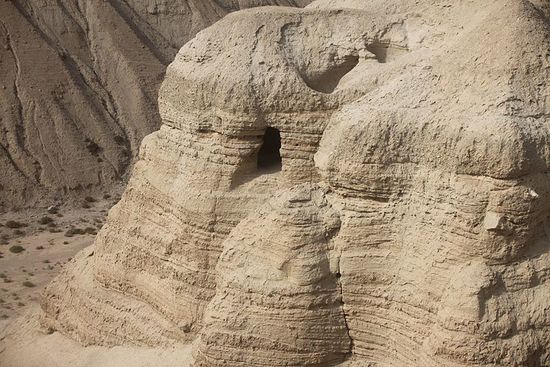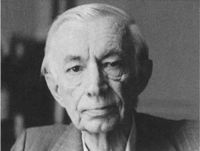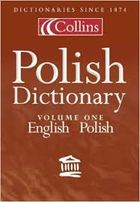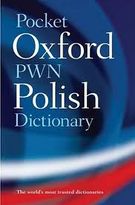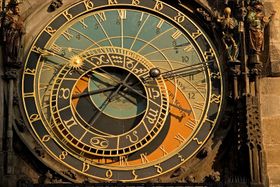Difference between revisions of "Category:Qumran Studies--Polish"
| Line 21: | Line 21: | ||
[[File:Milik.jpg|thumb|200px|[[Jozef Milik]]]] | [[File:Milik.jpg|thumb|200px|[[Jozef Milik]]]] | ||
Two major international works on the Dead Sea Scrolls appeared in Polish language in the 1960s: the popular survey by American journalist [[Edmund Wilson]] in 1963 and the scholarly introduction by Polish-born specialist [[Józef T. Milik]] in 1968. Beside Milik, three other Polish-born scholars, [[Eleazar Sukenik]], [[Shemaryahu Talmon]] and [[Ben Zion Wacholder]], were active internationally in those years but none of them had his works published in Polish language. | The Dead Sea Scrolls were discovered at a time in which Poland was under communist rule. International contacts were limited and studies in religion were discouraged. The situation began gradually to change from the 1960s. | ||
In the early 1960s [[Witold Tyloch]] published the first articles in Polish on the Dead Sea Scrolls, including a report on the Berlin-Symposium [[Qumran-Probleme]], organized by Bardtke. At that symposium [[Witold Tyloch]] presented a paper in French. | |||
Two major international works on the Dead Sea Scrolls appeared in Polish language in the 1960s: the popular survey by American journalist [[Edmund Wilson]] in 1963 and the scholarly introduction by Polish-born specialist [[Józef T. Milik]] in 1968. Beside Tyloch and Milik, three other Polish-born scholars, [[Eleazar Sukenik]], [[Shemaryahu Talmon]] and [[Ben Zion Wacholder]], were active internationally in those years but none of them had his works published in Polish language. | |||
In Poland, in the 1960s, 1970s and 1980s, [[Witold Tyloch]] was the major specialist of the Dead Sea Scrolls. In numerous articles he published the first translations into Polish of the Qumran texts. | In Poland, in the 1960s, 1970s and 1980s, [[Witold Tyloch]] was the major specialist of the Dead Sea Scrolls. In numerous articles he published the first translations into Polish of the Qumran texts. | ||
| Line 27: | Line 31: | ||
At the end of the 1980s, with the collapse of the Soviet rule, Polish scholars joined the international study of the Dead Sea Scrolls. In 1987 [[Zdzislaw Jan Kapera]] organized at Mogilany near Cracow, Poland the first of a series of five biennial international Congresses of Qumran Studies. The second congress in 1989 was held "in memory of Jean Carmignac." | At the end of the 1980s, with the collapse of the Soviet rule, Polish scholars joined the international study of the Dead Sea Scrolls. In 1987 [[Zdzislaw Jan Kapera]] organized at Mogilany near Cracow, Poland the first of a series of five biennial international Congresses of Qumran Studies. The second congress in 1989 was held "in memory of Jean Carmignac." | ||
Kapera was very active in the 1990s. Three more international Congresses were organized at Mogilany, in 1991, 1993, and 1995 | Kapera was very active in the 1990s. Three more international Congresses were organized at Mogilany, in 1991, 1993, and 1995 respectively. At the Madrid Qumran Congress in 1991, Kapera presented a paper on "The present state of Polish Qumranology" (published the following year in the Proceedings of the Conference). Kapera was not only the author of works on the Dead Sea Scrolls but also the editor of the journal [[The Qumran Chronicle]] (1990-) and founding director and owner of the Publishing House, [[Enigma Press]] (1990-), where several works by international author such as Fitzmyer and Betz were translated into Polish. In 1994, to mark the 45th anniversary of the Qumran Scrolls discoveries, Polish biblical scholars held a symposium in Czestochowa. | ||
In the 2000s a new generation of Polish Qumran Scholars emerged with [[Piotr Muchowski]] and [[Henryk Drawnel]]. | In the 2000s a new generation of Polish Qumran Scholars emerged with [[Piotr Muchowski]] and [[Henryk Drawnel]]. | ||
Revision as of 04:36, 7 September 2015
|
QuS (Polish) -- History of research -- Overview The Dead Sea Scrolls were discovered at a time in which Poland was under communist rule. International contacts were limited and studies in religion were discouraged. The situation began gradually to change from the 1960s. In the early 1960s Witold Tyloch published the first articles in Polish on the Dead Sea Scrolls, including a report on the Berlin-Symposium Qumran-Probleme, organized by Bardtke. At that symposium Witold Tyloch presented a paper in French. Two major international works on the Dead Sea Scrolls appeared in Polish language in the 1960s: the popular survey by American journalist Edmund Wilson in 1963 and the scholarly introduction by Polish-born specialist Józef T. Milik in 1968. Beside Tyloch and Milik, three other Polish-born scholars, Eleazar Sukenik, Shemaryahu Talmon and Ben Zion Wacholder, were active internationally in those years but none of them had his works published in Polish language. In Poland, in the 1960s, 1970s and 1980s, Witold Tyloch was the major specialist of the Dead Sea Scrolls. In numerous articles he published the first translations into Polish of the Qumran texts. At the end of the 1980s, with the collapse of the Soviet rule, Polish scholars joined the international study of the Dead Sea Scrolls. In 1987 Zdzislaw Jan Kapera organized at Mogilany near Cracow, Poland the first of a series of five biennial international Congresses of Qumran Studies. The second congress in 1989 was held "in memory of Jean Carmignac." Kapera was very active in the 1990s. Three more international Congresses were organized at Mogilany, in 1991, 1993, and 1995 respectively. At the Madrid Qumran Congress in 1991, Kapera presented a paper on "The present state of Polish Qumranology" (published the following year in the Proceedings of the Conference). Kapera was not only the author of works on the Dead Sea Scrolls but also the editor of the journal The Qumran Chronicle (1990-) and founding director and owner of the Publishing House, Enigma Press (1990-), where several works by international author such as Fitzmyer and Betz were translated into Polish. In 1994, to mark the 45th anniversary of the Qumran Scrolls discoveries, Polish biblical scholars held a symposium in Czestochowa. In the 2000s a new generation of Polish Qumran Scholars emerged with Piotr Muchowski and Henryk Drawnel.
|
Cognate Fields (Polish) Second Temple Studies -- Enochic Studies -- Apocalyptic Studies -- Qumran Studies -- OT Apocrypha Studies -- Wisdom Studies -- OT Pseudepigrapha Studies -- Hellenistic-Jewish Studies -- Philo Studies -- Josephus Studies -- Historical Jesus Studies -- Pauline Studies -- Johannine Studies -- Petrine Studies -- Gospels Studies -- Christian Origins Studies -- New Testament Studies -- Early Christian Studies -- Early Jewish Studies -- Early Islamic Studies -- Early Samaritan Studies -- Hebrew Bible Studies -//- Fiction (Polish)
|
Pages in category "Qumran Studies--Polish"
The following 26 pages are in this category, out of 26 total.
1
- Manuskrypty z Qumran a chrzescijanstwo (Manuscripts from Qumran and Christianity / 1958 Strakowski), book
- Odkrycia w Qumran nad morzem martwym a Nowy Testament (The Discoveries at Qumran near the Dead Sea and the New Testament / 1960 Dabrowski), book
- Wykopaliska w Qumran a pochodzenie chrzescijanstwa (The Excavations at Qumran and the Origins of Christianity / 1961 Chylinski), book
- Rekopisy znad Morza Martwego = Рукописи Мертового моря (Dead Sea Scrolls / 1963 @1960 Amusin / Kunderewicz), book (Polish ed.)
- Rekopisy z Qumran nad Morzem Martwym (Dead Sea Scrolls / 1963 Tyloch), book
- Odkrycia nad Morzem Martwym = The Scrolls from the Dead Sea (1963 @1955 Wilson / Swiecka), non-fiction (Polish ed.)
- Dziesiec lat odkryc na pustyni judzkiej = Dix ans de découvertes dans le Désert de Juda (Ten Years of Discoveries in the Wilderness of Judaea / 1968 @1957 Milik / Kubiak), book (Polish ed.)
- Starotestamentowy kult ofiarniczy w liscie do hebrajczyków a w manuskryptach i dokumentach z Qumran (The Old Testament Sacrificial Cult in the Letter to the Hebrews and the Manuscripts and Documents from Qumran / 1970 Skwarczewski), book
- Aspekty spoleczne gminy z Qumran (Social Aspects of the Qumran Community / 1973 Tyloch), book
- Zwój Miedziany 3Q15 (Copper Scroll 3Q15 / 1993 Muchowski), book
- Jezus, Qumran i Watykan = Jesus, Qumran und der Vatikan (1994 @1993 Betz, Riesner / Kielbasinska, Kapera), book (Polish ed.)
- Rekopisy znad Morza Martwego (Dead Sea Scrolls / 1996 Muchowski), book
- Qumran: poemat symfoniczny (Qumran: A Symphonic Poem / 1996 Steinfeld), poetry
- Manuskrypty znad Morza Martwego = The Dead Sea Scrolls Today (1996 @1994 VanderKam / Gromacka), book (Polish ed.)
- Piesni ofiary szabatowej z Qumran i Masady (Songs of the Sabbath Sacrifice from Qumran and Masada / 1996 Zdun), book
- 101 pytan sobre o Qumran = Responses on 101 Questions on the Dead Sea Scrolls (1997 Fitzmyer / Kapera), book (Polish ed.)
- Rekopisy z Qumran nad Morzem Martwym (Dead Sea Scrolls / 1997 Medala, Tyloch), book
2
- Komentarze do rekopisów znad Morza Martwego (Commentaries to the Dead Sea Scrolls / 2000 Muchowski), book
- Rekopisy znad Morza Martwego, 2nd rev. ed. (Dead Sea Scrolls / 2000 Muchowski), book
- Hebrajski qumranski jako jezyk mówiony (Qumran Hebrew as a Spoken Language / 2001 Muchowski), book
- Peszery do Ksiegi Izajasza (Isaiah Pesher / 2004 Malecki), book
- Komentarze do rekopisów znad Morza Martwego, 2nd rev. ed. (Commentaries to the Dead Sea Scrolls / 2005 Muchowski), book
- Qumran (The Qumran Mystery / 2006 @1996 Abécassis / Melech), novel (Polish ed.)
- Idea swiatyni w pismach qumranskich (The Idea of the Temple in the Writings of Qumran / 2006 Skrzypczyk), book
- Qumran: pomiedzy Starym a Nowym Testamentem (Qumran: Between the Old and New Testaments / 2009 Drawnel, Piwowar), edited volume
